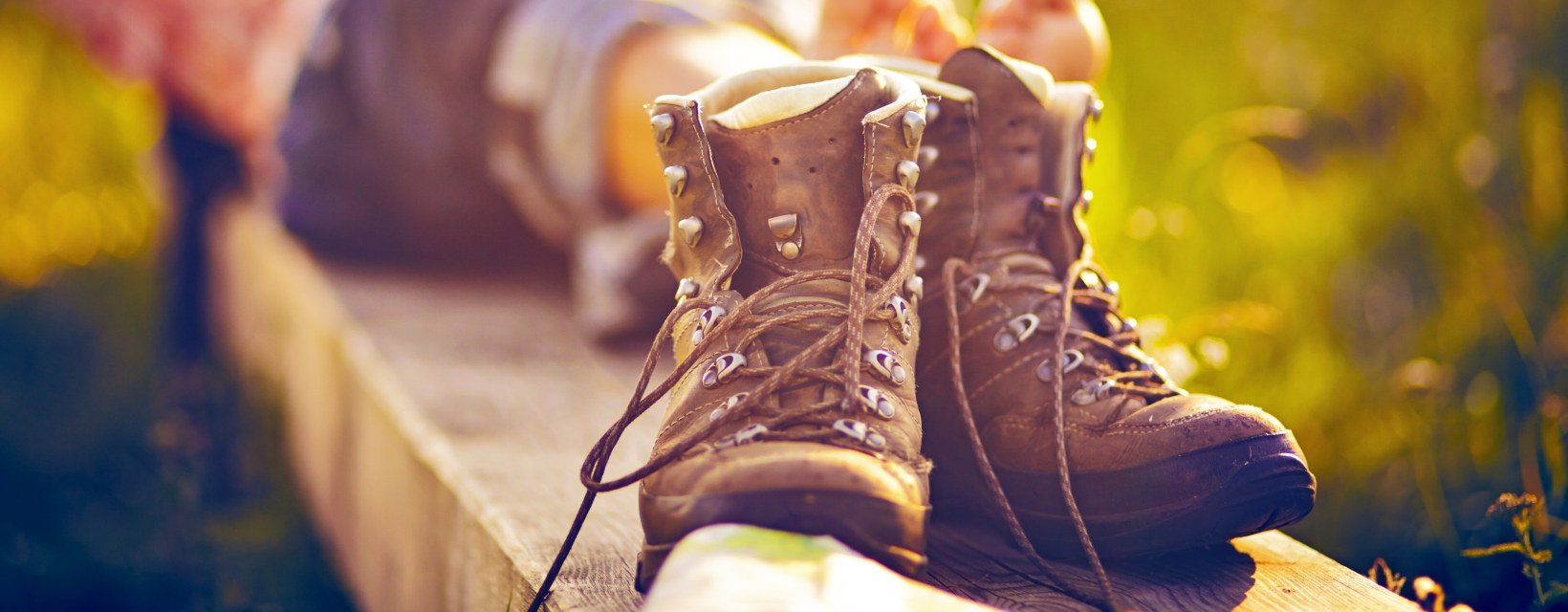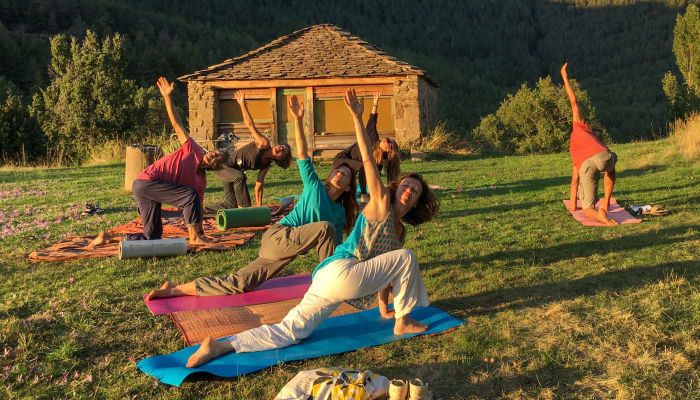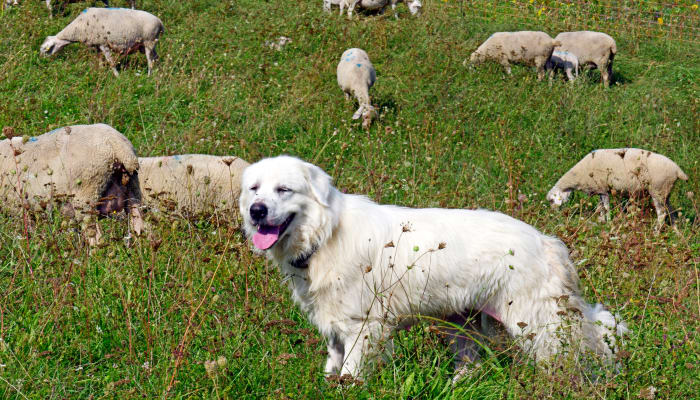Gonzalo, accompagnateur en montagne, nous donne de précieux conseils, pour les débutants ou pour les confirmés.
Comment faire pour rester en forme tout au long de la randonnée ? Voici quelques astuces...
Conseil numéro 1 : l’entraînement
C’est mon conseil le plus important. L'idéal est de pratiquer une activité physique régulière, chacun à son niveau, à vélo, à pied, peu importe, pour développer son endurance. Si on n’arrive pas à courir sur une longue durée, pas de problème, on peut courir un peu, puis marcher, et reprendre la course. Il faut démarrer lentement et ne pas forcer : ce n’est pas la vitesse qui est importante, mais plutôt la durée ! 40 minutes sont conseillées au minimum, sinon, votre organisme ne se rend même pas compte de l’exercice.
La promenade au parc sur le plat, même si elle est agréable, ne nous fera pas progresser physiquement. Pour qu’un entraînement soit efficace, il doit provoquer une petite fatigue… le cœur, les poumons… on doit les sentir en mouvement. Il faut « fatiguer» gentiment son organisme, pour pouvoir progresser, mais sans jamais trop le forcer : un équilibre délicat !
Et une seule fois ne sert à rien. Il faut être persévérant et s’entraîner deux ou trois fois par semaine, régulièrement, et en laissant à l’organisme le temps de se reposer entre un séance et l’autre. Et petit à petit, on se sent mieux et l’entraînement devient un plaisir !
On peut travailler aussi sa technique et sa souplesse : pendant une randonnée, on se fatigue davantage si on doit forcer pour faire de grands mouvements. Travailler la souplesse, c’est un plus ! Après un effort, on peut donc faire quelques étirements.
Mais rassurez-vous, pour ceux qui n'ont pas le temps de s'entraîner avant leur départ, pas de problème. Tant qu’on a un poids de forme, c’est possible ! Le tout est choisir une randonnée adaptée, la gamme des «randos découverte» par exemple, ou des randonnées peu techniques.
Surtout il faut bien choisir son circuit et ne pas se surestimer : si on voit que l’on est bien dans une randonnée facile, on peut ensuite aspirer à d’autres un peu plus difficiles, toujours progressivement.
Conseil numéro 2 : trouver son rythme
Trouver son rythme est important et pas aussi facile qu’on ne le pense. Si l'on se fatigue, il faut s’efforcer de marcher lentement, car la fatigue vient souvent d’une allure inadaptée. Le conseil que je donnerais en cas de fatigue, c’est d’aller encore plus lentement, car cela va permettre de tenir, et de ne pas s’arrêter souvent.
Le groupe ne doit pas démarrer vite, pour laisser à l’organisme le temps de s’adapter à la marche et de ne pas s’épuiser sur la durée. Un des rôles de l’accompagnateur c’est de gérer le rythme et faire attention à tout le monde. Un petit rythme c’est plus efficace : on arrive à marcher pendant des heures et des heures sans se fatiguer.
Il faut surtout éviter la pire des choses à faire, qui est d’accélérer pour rattraper un groupe, puis s’arrêter pour souffler, puis accélérer de nouveau… !
Conseil numéro 3 : s’hydrater tout au long de votre randonnée
Avant, pendant, et après l'effort ! Il faudrait boire 4 litres, donc varier les boissons permet d’y arriver : thé, boissons, soupe, eau… On peut boire jusqu'à 7 ou 8 litres en Espagne, quand il fait chaud. S'hydrater est important, car avec 2% de perte de poids en liquide, on va perdre 20% de sa capacité physique.
Et puis ça évite aussi le mal aux muscles après la randonnée, ou les jambes lourdes. Donc même quand il ne fait pas chaud, on boit.
Et on mange ! Prendre un petit déjeuner costaud, c’est la base. Des liquides, des sucres rapides, des féculents… Quelques protéines vont rendre l’action des féculents plus efficace.
Pour la randonnée, prévoir quelques barres énergétiques, mais sans excès, parce que trop de sucres peuvent entraîner un effet contraire.
Pour le pique-nique, de bonnes choses, qu’on aime, et variées : on essaie de privilégier des aliments légers.
Et le soir, il faut manger des féculents -pâtes, riz-, des protéines -viandes-, des salades, et même un peu de graisses naturelles : saucisson, jambon… On doit manger ni trop, ni pas assez. Il ne faut pas, par exemple, se mettre en tête qu’on va faire une randonnée pour perdre du poids ! La montagne, ce n’est pas un lieu pour moins manger.
Conseil numéro 4 : terminer par quelques étirements en fin de journée
Si on a mal aux muscles, c’est sûrement parce qu’on n’a pas bu assez d’eau. Le soir, pour ceux qui aiment, je conseille de boire une bière, rafraichissante, elle est pleine de vitamines B et ça aide à la détente du muscle. Pour ceux qui n’aiment pas, la levure de bière est une bonne alternative.
Si on continue à avoir mal, en plus de continuer à boire -on n’insistera jamais assez- un paracétamol ou de l'aspirine peuvent aider.
Les crampes arrivent principalement à cause de la perte de sels minéraux pendant la transpiration. Il faut compenser par une eau minéralisée ou par une boisson isotonique. Les bananes aussi : elles contiennent beaucoup de potassium ! D’ailleurs il faut éviter les eaux minérales pauvres en sel. Une bonne soupe aide à l’hydratation et permet d’éviter des crampes.
Dernier conseil : marcher léger
Pour s'économiser, c’est bien d’avoir un matériel léger ; un sac à dos léger et de bonne qualité va contribuer à être mieux pendant la marche, ne pas prendre prendre des choses inutiles -mais ne pas oublier des choses utiles-, éviter des chaussures lourdes dans des randonnées faciles -petit à petit cela pèse aux pieds- ne pas porter trop de vêtements sur soi si on n’a pas besoin, pour avoir la liberté de mouvements… Ces petites choses contribuent au bien-être pendant la randonnée.
Créateur de voyages dans les Pyrénées
Autres articles
Vos questions fréquentes
L'idéal est de pratiquer une activité physique régulière, chacun à son niveau, à vélo, à pied, peu importe, pour développer son endurance. Si on n’arrive pas à courir sur une longue durée, pas de problème, on peut courir un peu, puis marcher, et reprendre la course. Il faut démarrer lentement et ne pas forcer : ce n’est pas la vitesse qui est importante, mais plutôt la durée ! 40 minutes sont conseillées au minimum, sinon, votre organisme ne se rend même pas compte de l’exercice. Si l'on se fatigue, il faut s’efforcer de marcher lentement, car la fatigue vient souvent d’une allure inadaptée.






